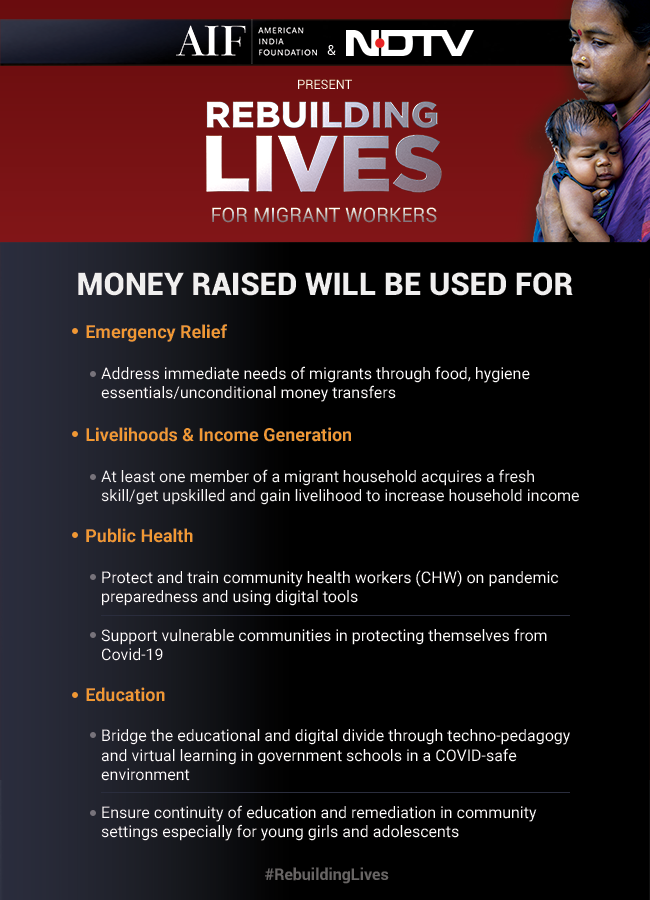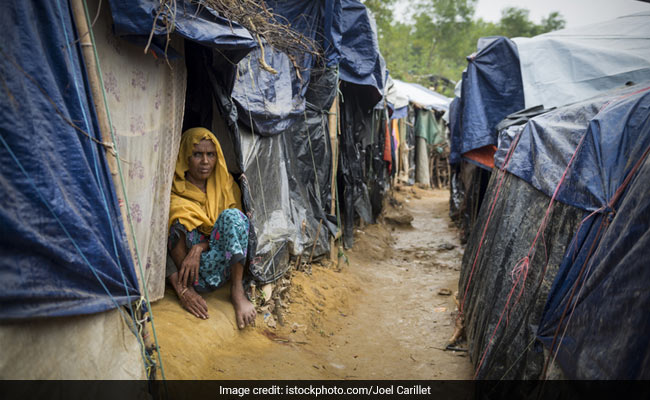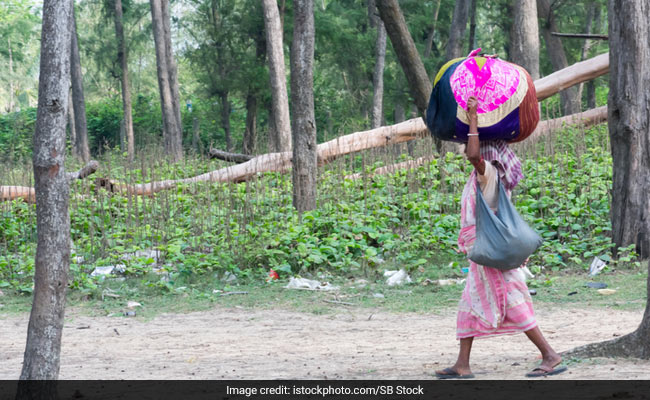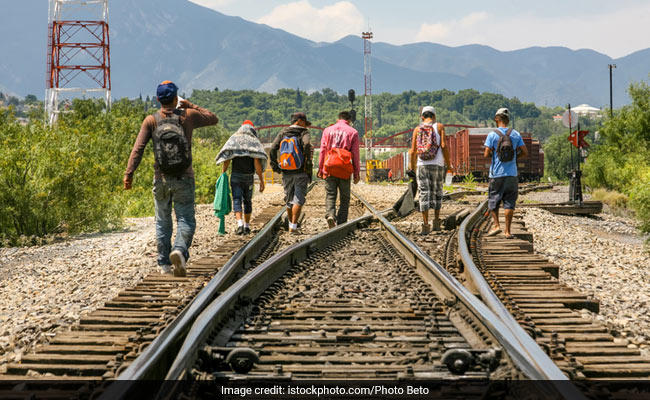Around 40 million migrant daily-waged workers have been hit hard by the lockdown imposed in the wake of COVID-19. Rebuilding Lives is an action-oriented campaign by American India Foundation (AIF) in partnership with NDTV to rebuild the lives of migrant communities. The need of the hour is for immediate relief to serve urgent needs, equal attention is required towards a sustainable and resilient rebuilding of lives through a multi-pronged response, addressing health, education and livelihoods.
Here are the highlights of the #RebuildingLives Telethon:
To help rehabilitate migrants, donate now: https://special.ndtv.com/rebuilding-lives-72/donate-now
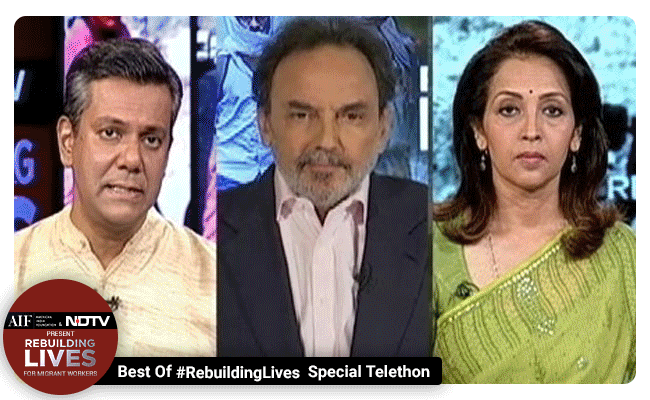
Keep your contributions coming for to help the migrants. Donate now: https://special.ndtv.com/rebuilding-lives-72/donate-now
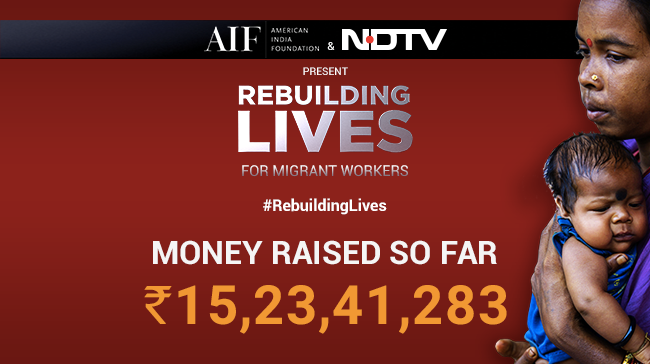
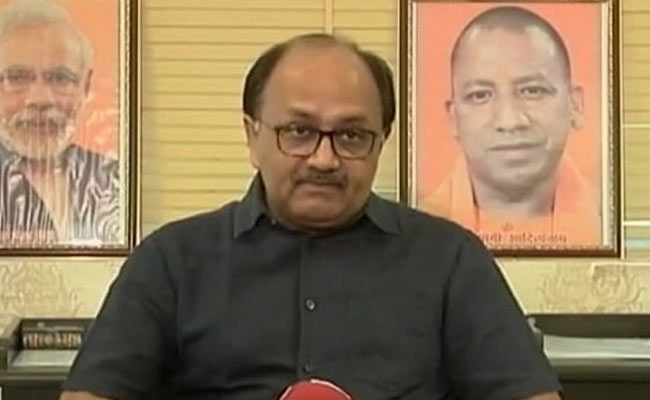
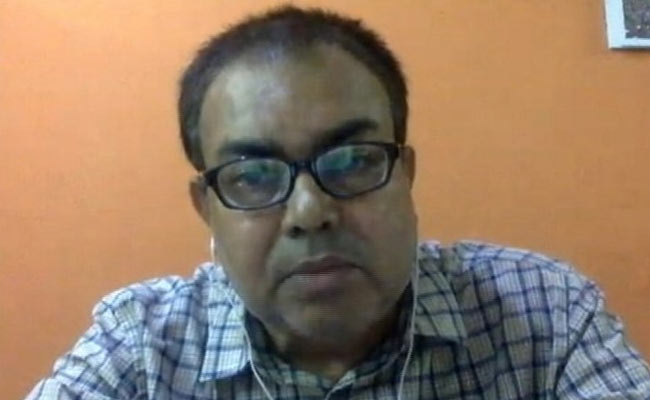
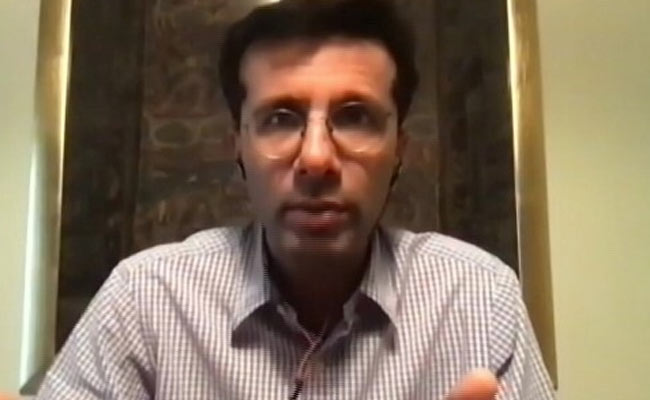
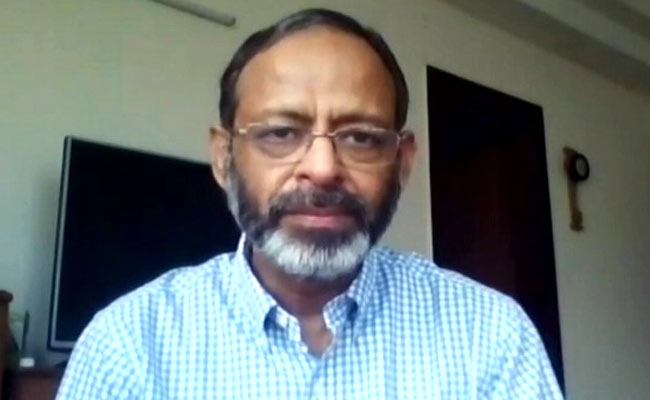
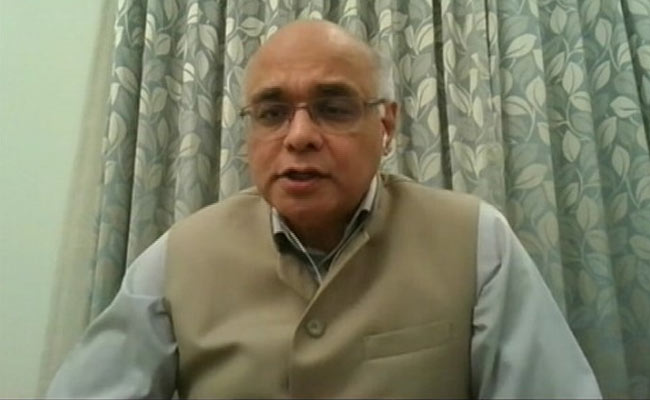
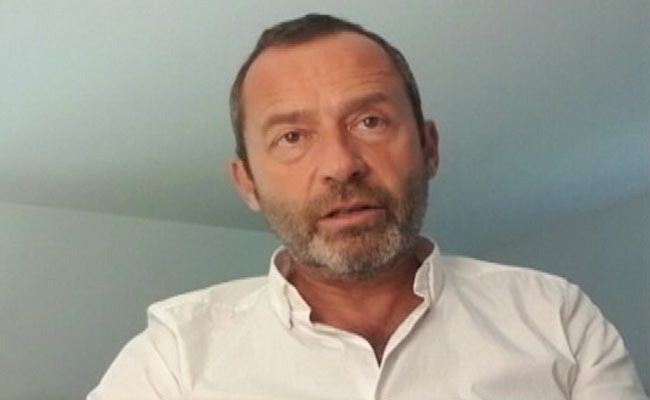
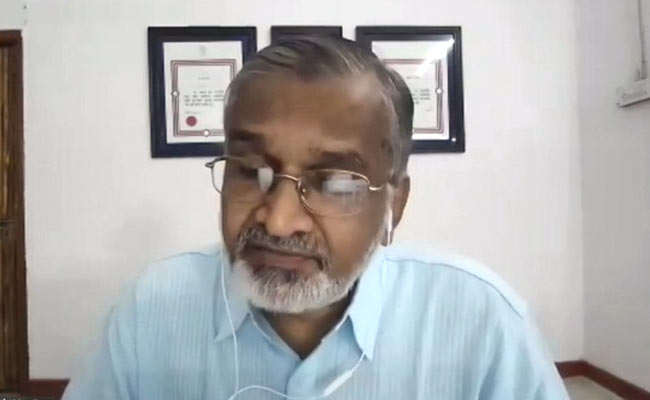
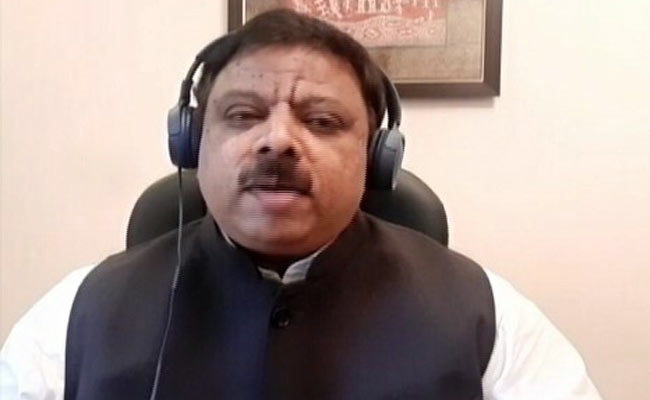
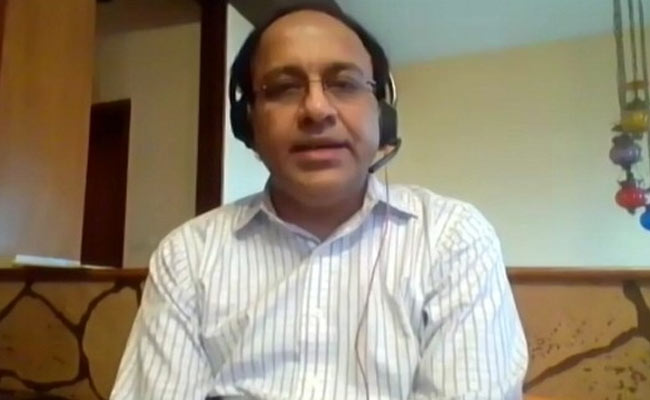
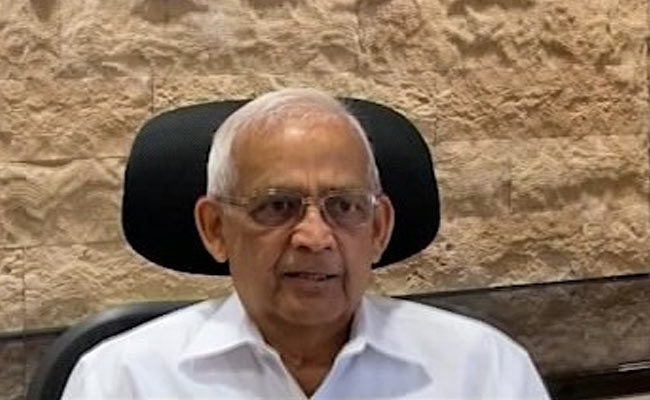
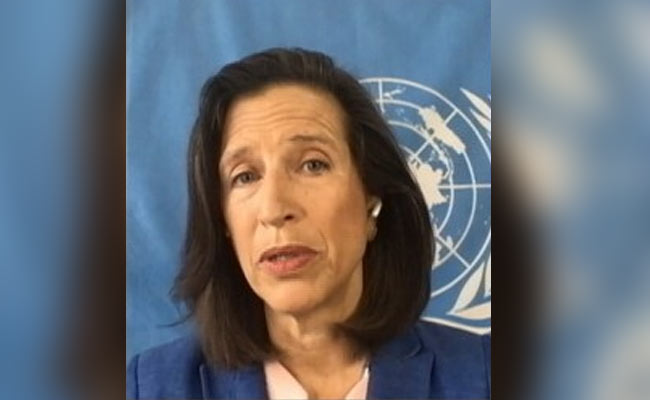
To help rehabilitate migrants, please donate now: https://special.ndtv.com/rebuilding-lives-72/donate-now
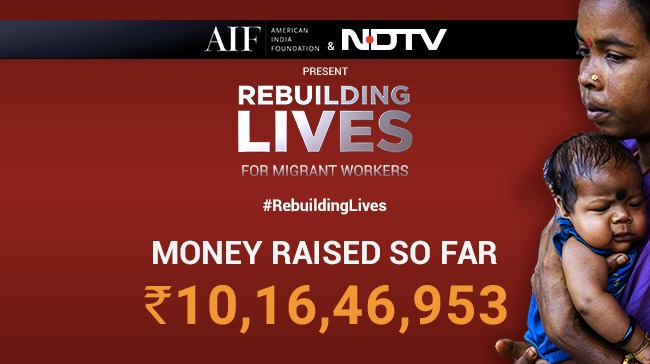
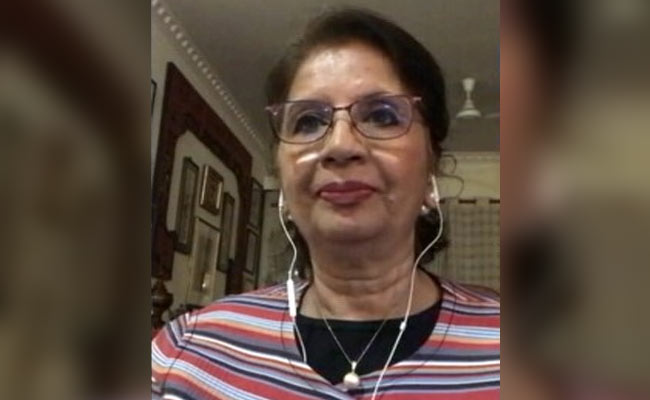
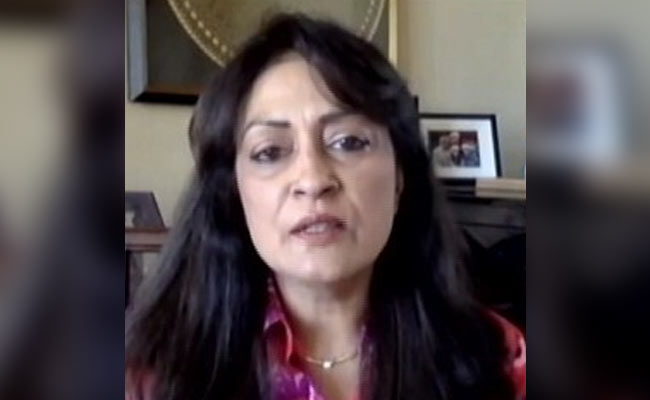
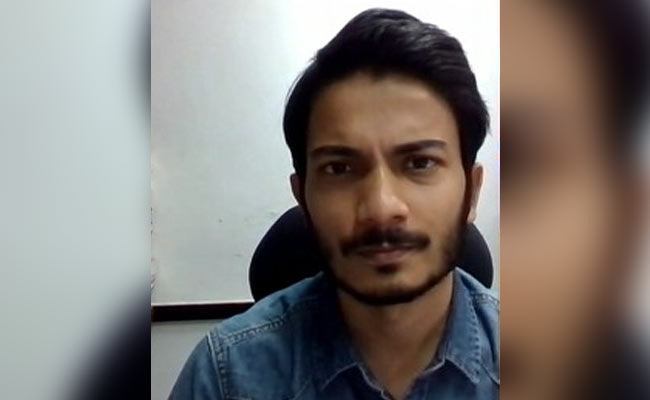
To help rehabilitate migrants donate now: https://special.ndtv.com/rebuilding-lives-72/donate-now
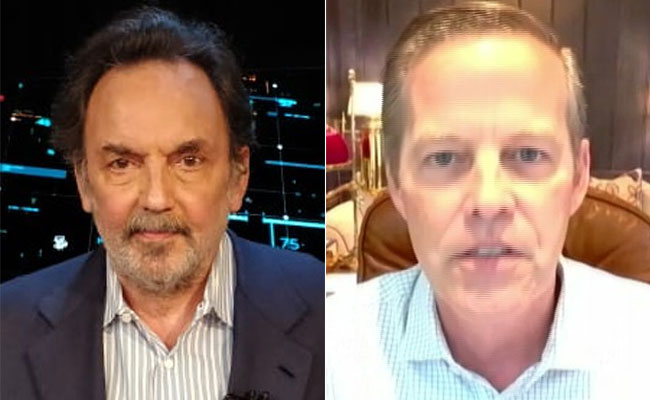
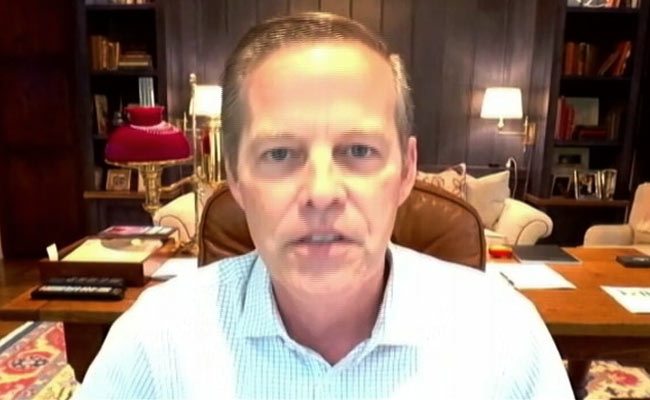
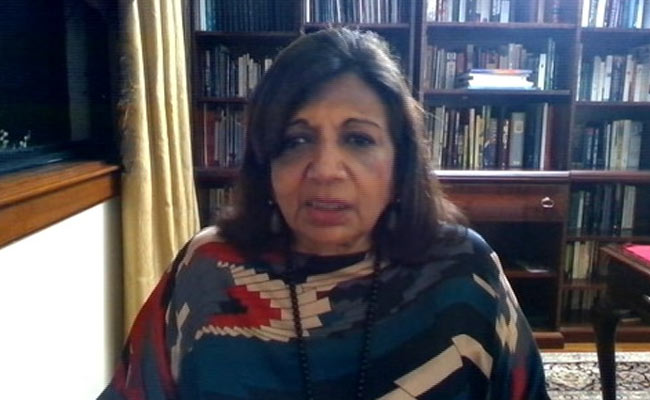
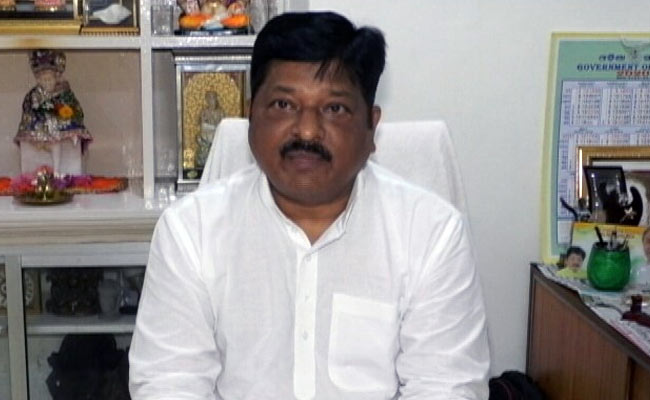
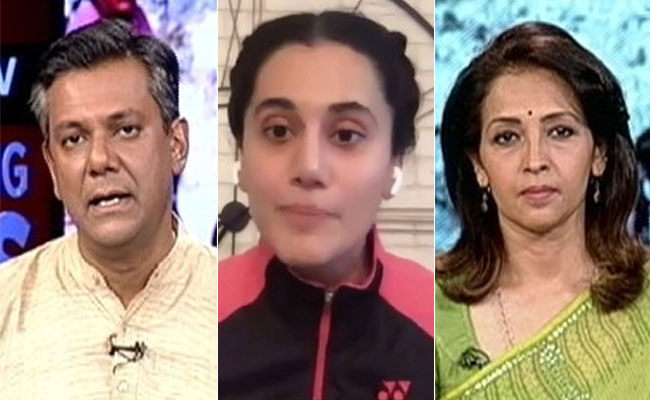
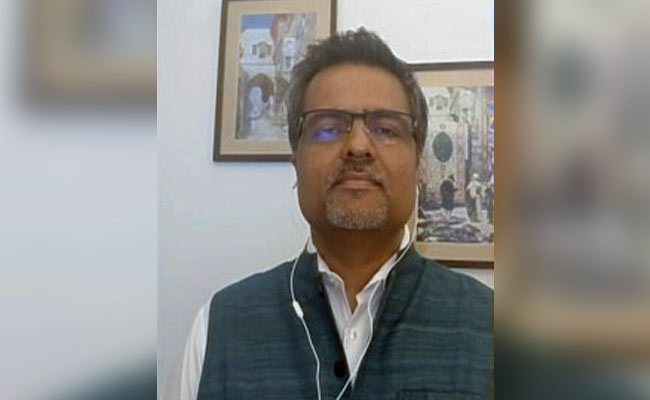
Donate now: https://special.ndtv.com/rebuilding-lives-72/donate-now
Coming up | American India Foundation and NDTV's special show to help rehabilitate migrant workers. Watch LIVE at 7 pm.#RebuildingLives
- NDTV (@ndtv) June 14, 2020
(In partnership with @AIFoundation)
Donate now: https://t.co/EySV9hmZMC pic.twitter.com/gPalsXDiV5
To contribute for the cause of rehabilitating migrant workers, click here.
To donate for the cause of migrant workers, click here.
